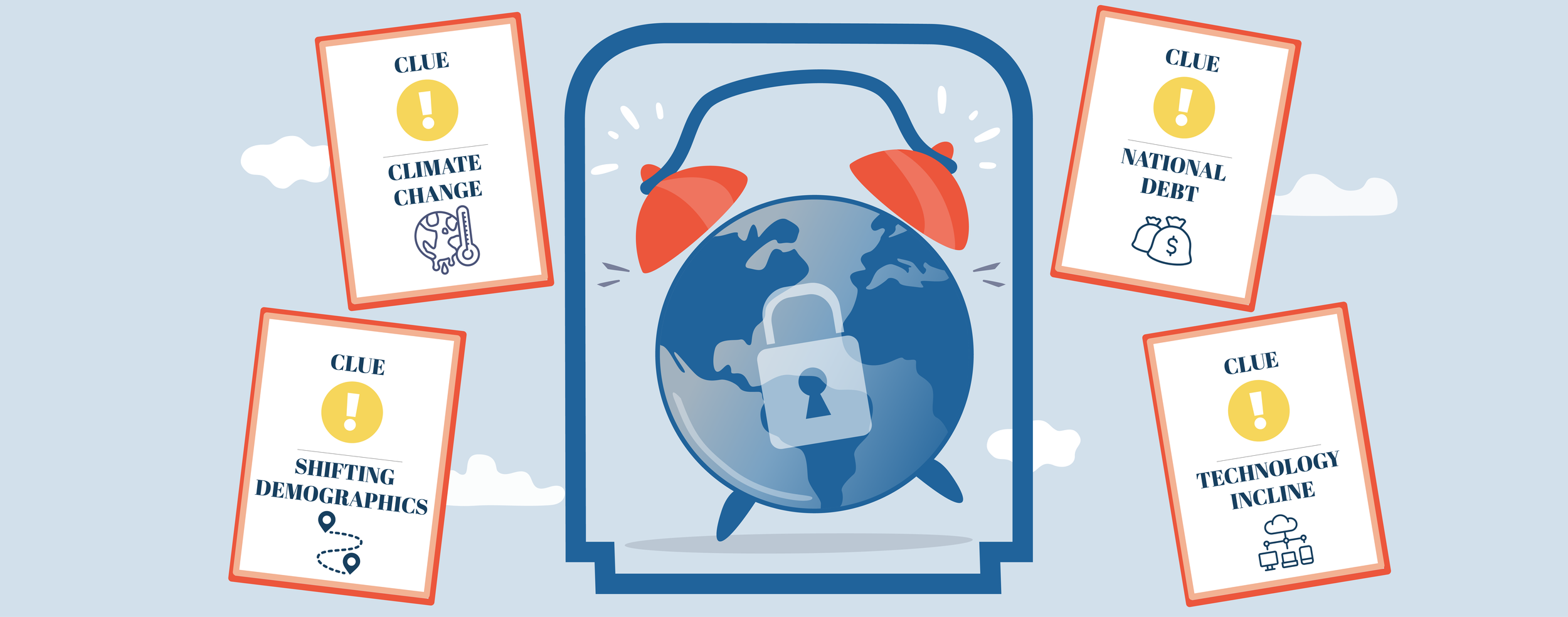Choose Your Own Adventure 2040
A Look at the National Intelligence Council’s 7th Edition Global Trends Report
by Cristin Kumar
Our world’s resources are finite and its future uncertain. By delving into the past, however, we are better able to identify historical trends and prepare for a myriad of possible futures. The National Intelligence Council’s (NIC) 7th Global Trends report does just that. Every four years upon the entry of a new or returning presidential administration, the NIC provides a detailed, thoughtful, data-driven assessment of the existing global environment to help better inform policymakers of the geopolitical environment. Global Trends 2040: A More Contested World postulates that the convergence of structural forces, emerging dynamics, and key uncertainties will determine which of the five possible scenarios we might expect to see. Underpinning the five scenarios are the themes of shared global challenges, fragmentation, disequilibrium, contestation, and adaptation—all of which exist now and in the future.
There is no question that our world is changing at a rapid pace. By assessing our current environment, however, we can better anticipate these changes. The current environment is one in which:
Shifting demographics across the globe continue to stress the current economic, educational, and healthcare systems that serve the rising aging populations in developed countries.
Climate change threatens the earth’s natural resources with rising temperatures, water levels, and extreme weather.
Rising national debt, trade wars, and employment disruptions affect the international economic order.
The rapid incline of technology, though providing convenient and quick solutions to complex problems, connects and informs people all over the world while paradoxically polarizing and misinforming communities.
Meanwhile, societal distrust of institutions is rising and the gap between the public’s growing demand and the state’s ability to adequately address that demand is increasing volatility within and across countries.
The NIC explains that we could experience a range of “alternative world” scenarios depending on how these structural forces and emerging dynamics play out over the next two decades. Of the five scenarios the NIC theorizes, the most utopian seeming is titled a “Renaissance of Democracies,” wherein democracy spreads throughout the world led by the U.S. and its allies. At the other end of the spectrum, one of the most disturbing (although it is hard to pick just one) scenarios is “A World Adrift” in which the international world order is chaotic, the global economy is stagnant, China is leading, and societal divides are wider than ever before.
“One thing is clear from the Global Trends 2040 report: human choice is the most important factor in determining the future. ”
One thing is clear from the Global Trends 2040 report: human choice is the most important factor in determining the future. Somewhat reminiscent of the “Choose Your Own Adventure” book you read as a child (except with slightly higher stakes), making the wrong decisions will result in outcomes none of us wish to see. But as humans we also have the power to prepare for the inevitable challenges we will face as a country and as a planet, then pivot and adapt accordingly. Although we cannot know what the future holds, we can prepare for its possibilities.
To read more about the history behind the Global Trends reports, or to read this edition of the report, check out the NIC’s Global Trends-dedicated page here.


